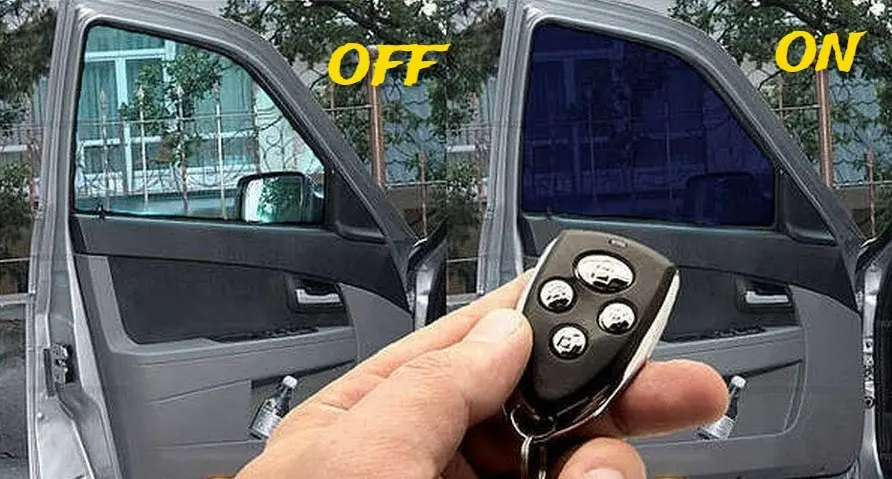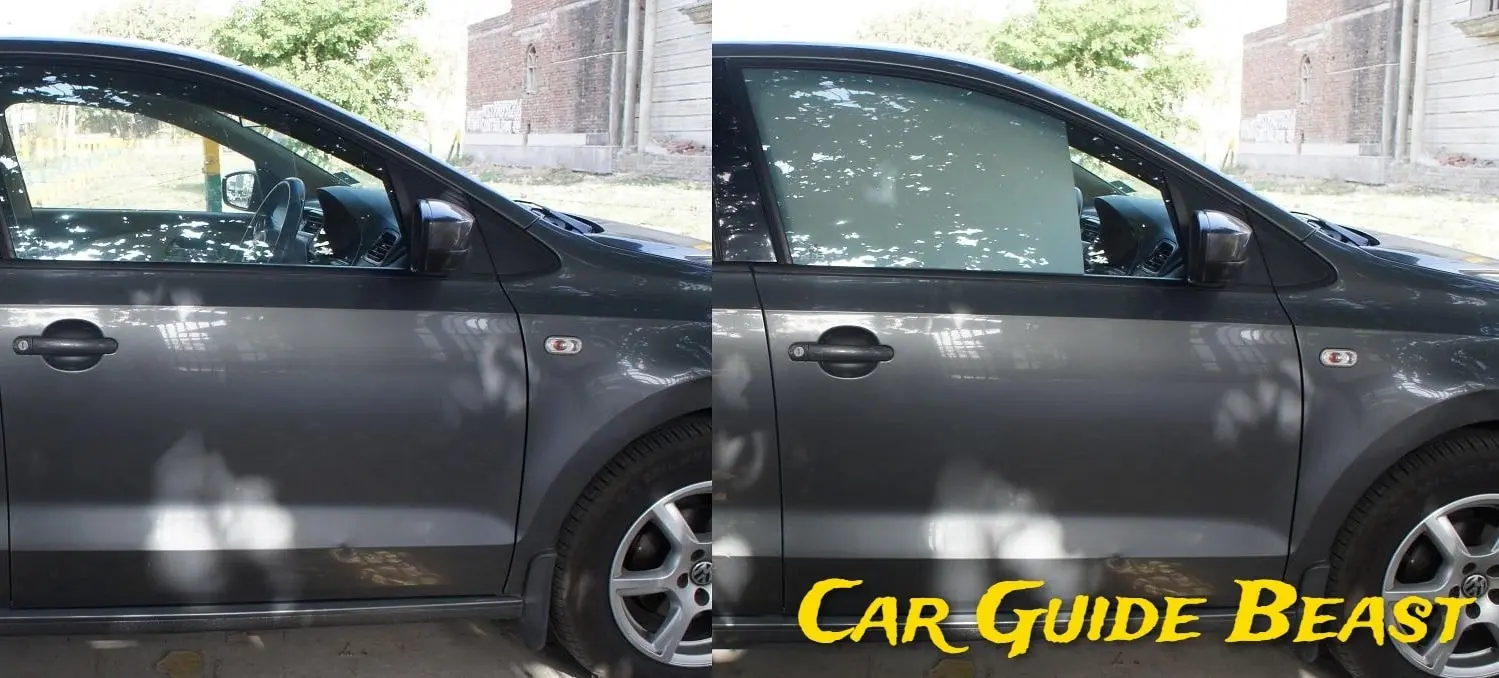In recent years, technology has introduced innovative solutions to enhance our daily lives, and one such advancement is smart window tint for cars. Gone are the days when window tint merely served as a cosmetic feature or a way to reduce glare. With smart window tint, car owners can now enjoy privacy, energy efficiency, and enhanced comfort. In this article, we will explore the fascinating world of smart window tint for cars and delve into its benefits, applications, and factors to consider when choosing the right tint for your vehicle.
How Does Smart Window Tint for Cars Work?

Smart window tint for cars utilizes advanced technology to provide control over the transparency of the windows that shades electronically. It typically consists of a special film that can change its opacity in response to external stimuli. This film is integrated with the car’s electrical system, allowing the driver or passengers to adjust the tint level with ease. By using an electric current, the smart tint can transition from transparent to opaque, providing instant privacy and reducing the amount of sunlight entering the car.
Benefits of Smart Window Tint for Cars

Enhanced Privacy: With smart car window tint, you can enjoy complete privacy with a simple flick of a switch. Whether you’re parked in a crowded area or simply want to shield yourself from prying eyes, the tint allows you to create a private space inside your car.
Improved Energy Efficiency: Electric window tint can help regulate the temperature inside your car by reducing the amount of heat that enters through the windows. By blocking a significant portion of solar radiation, the tint helps keep the interior cooler, reducing the reliance on air conditioning and improving fuel efficiency.
Glare Reduction: Smart window films reduces glare from the sun, headlights, and other sources of bright light. This ensures a more comfortable driving experience by minimizing eye strain and distractions caused by excessive glare.
Protection against UV Rays: The tint film used in smart tint for cars provides a layer of protection against harmful ultraviolet (UV) rays. It helps shield your skin from the sun’s damaging effects and prevents the car’s interior from fading or deteriorating due to prolonged exposure to UV radiation.

Customizable Tint Levels: Unlike traditional window tint, smart glass film offers the flexibility to adjust the opacity according to your preferences. Whether you want maximum transparency for a scenic drive or complete privacy in busy city streets, you can easily control the tint level to suit your needs.
Applications of Smart Window Tint for Cars
The applications of smart window film for cars are vast and diverse. Here are a few examples:
Personal Vehicles: Smart tint enhances the comfort and privacy of personal vehicles, providing an enjoyable driving experience for owners.
Rideshare Services: Cars used for rideshare services can benefit from smart film for windows as it offers passengers the option to enjoy privacy during their journey.
Commercial Vehicles: Delivery trucks, corporate cars, and other commercial vehicles can employ smart tint to protect valuable cargo and maintain a professional image.
Emergency Vehicles: Smart window tint can be used in emergency vehicles to ensure privacy for patients and medical personnel during critical situations.
Factors to Consider When Choosing Smart Window Tint for Cars
Tint Laws: Familiarize yourself with the window tinting regulations in your area to ensure compliance with legal requirements.
Tint Performance: Consider the heat and glare reduction capabilities of the tint film to determine its effectiveness in optimizing comfort and energy efficiency.
Installation Quality: Choose a reputable installer who has experience with smart window tint installation to ensure proper functionality and longevity.
Warranty and Maintenance: Inquire about the warranty provided by the manufacturer or installer and understand the recommended maintenance procedures for the smart window films.
Smart Window Tint Price
The price of smart window tint for cars can vary depending on several factors such as the brand, quality, size of the windows, and the complexity of the installation. On average, the cost of smart window tint for cars can range from $200 to $800 or more. It’s recommended to consult with local car window tinting professionals or retailers to get accurate pricing based on your specific requirements.
Conclusion
Smart window tint for cars is a remarkable technological advancement that offers a range of benefits, from enhanced privacy to improved energy efficiency. With its customizable tint levels and innovative features, it has become a popular choice among car owners. When selecting a smart window tint for your car, consider factors such as tint laws, performance, installation quality, and maintenance requirements. Embrace the convenience and comfort that electric tinted windows for cars provide and revolutionize your driving experience.
FAQs
How much does ElectraTint cost?
ElectraTint costs vary depending on the specific product and the size of the window to be tinted. For accurate pricing information, it is recommended to contact ElectraTint directly or visit their website.
How long does smart tint last?
On average, smart tint can last between 5 to 10 years with proper care and maintenance.
Can smart window tint be retrofitted to existing car windows?
Yes, smart window tint can be installed on existing car windows by professional installers.
Is smart window tint legal everywhere?
Window tint regulations vary by jurisdiction, so it’s essential to check the specific laws in your area before installing smart window tint.
What does PDLC mean in glass?
PDLC stands for Polymer Dispersed Liquid Crystal. It is a type of smart glass technology where a liquid crystal polymer is dispersed within a transparent matrix, allowing the glass to switch between opaque and transparent states when an electric current is applied.
